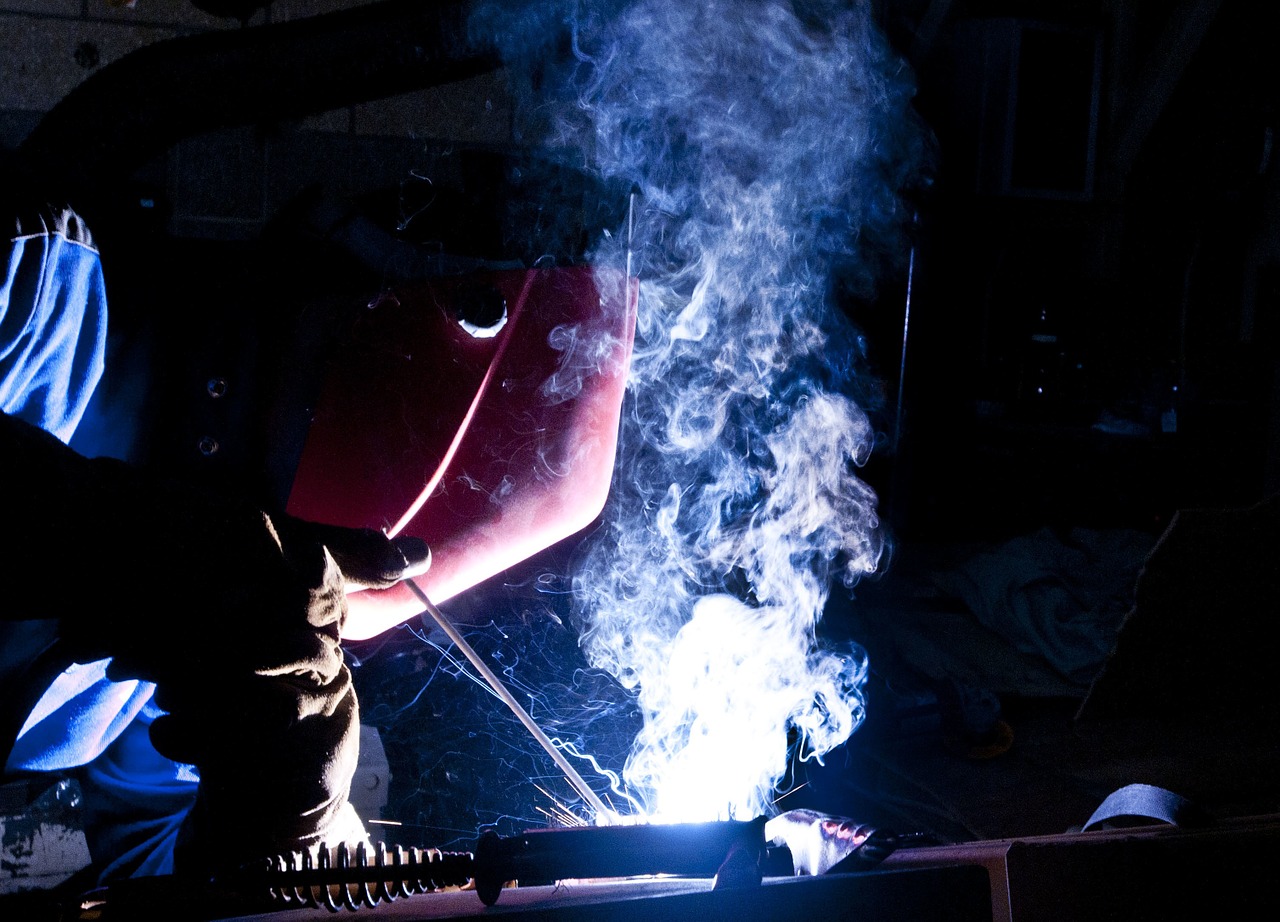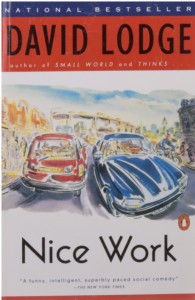Translating deep thinking into common sense
Nice Work If You Can Get It

By Kurt Keefner
April 5, 2015
SUBSCRIBE TO SAVVY STREET (It's Free)
A critical review of the seriocomic book Nice Work by British book critic and novelist David Lodge.
You could view Atlas Shrugged as a deliberate attempt to improve on Quo Vadis. Even the name Dagny comes from another of Sienkiewicz’s novels.
One of the joys of being tolerably well-read is that you start picking up on patterns and allusions in literature. To mention a brief example, Atlas Shrugged’s plotline of Dagny pursuing the destroyer and finding the strikers is an echo of Quo Vadis’ plotline of Vicinius pursuing Lygia and finding the Christians. In fact, you could view Atlas Shrugged as a deliberate attempt to improve on Quo Vadis. Even the name Dagny comes from another of Sienkiewicz’s novels.
If a literary critic were to begin writing novels, you might expect a lot of such allusions and echoes—which are called “intertextuality”—in them. This is the case with British critic/novelist David Lodge and his seriocomic book Nice Work (1989).
The thing that drew my attention to Nice Work was not its intertextuality, however, but its realistic and generally positive portrayal of a modern businessman. This businessman, the managing director of a British foundry named Victor Eugene Wilcox, is, as part of a government program in the Thatcher era, assigned a “shadow,” an academic who is supposed to follow him around one day a week for ten weeks to learn how industry works.
Robyn Penrose specializes in post-modernist feminist literary criticism of the nineteenth-century “industrial novel” (such as Dickens’ Hard Times).
The academic in question is a woman named Robyn Penrose, who specializes in post-modernist feminist literary criticism of the nineteenth-century “industrial novel” (such as Dickens’ Hard Times). While Victor has a common sense view of the a world populated by people who need to do things and who sometimes love each other, Robyn doesn’t believe in the idea of the coherent self in life, or of character in literature, or even of love (It’s just capitalist merchandizing to her). She is a thorough deconstructionist. Putting these two opposing figures on a collision course gives Lodge no end of opportunities for illumination and amusement.
The fun begins with the protagonists’ names: Victor Eugene Wilcox, the capitalist, is the opposite of Eugene Victor Debs, the famous American socialist. And Wilcox is the name of the industrialist in E. M. Forster’s Howard’s End.
Robyn Penrose has an androgynous first name, because she doesn’t accept traditional female roles, and the last name of a famous mathematician, famous for his tilings of the plane—i.e. for his mosaics. Robyn, you see, is a mosaic, because sometimes she stops deconstructing novels and just enjoys them in a “humanistic” way. And sometimes she loves.
The two characters have more in common than meets the eye. They both work very hard and they both have integrity by the standards of their fields. They both worry about their jobs. He faces stiff competition and some of his subordinates seem to be up to something nefarious. She has a non-tenured position and doesn’t know whether she will be held over past her current contract. He is married to a complacent shopaholic who is no longer attractive to him, and has three children who do not appreciate him. She is confident, both in her work and in bed, and is in a long-standing open relationship with a man who teaches in another city. Marriage isn’t even part of their universe.
The life-difficulties of the protagonists may make the story sound rather dreary, but put the two characters together and the sparks fly. Throwing the woman of culture in with the man of industry is itself an allusion to Elizabeth Gaskell’s industrial novel, North and South. In the nineteenth-century version, love is inevitable. The cotton-manufacturer John Thornton and the parson’s daughter Margaret Hale meet in an imaginary Manchester and through a series of conflicts and misunderstandings, come together.
In the twentieth-century version, love is problematic at best, especially since the woman doesn’t even believe in love. The “metal basher” Victor Wilcox and the deconstructionist meet in an imaginary Birmingham and through a series of conflicts and misunderstandings—well, let’s just say they don’t get married in the end.
The point of such collisions is dialectical, of course. The two antithetical characters learn from each other and grow toward each other. Victor, for example, takes down the pornographic posters that decorate the foundry, and learns a little bit about not exploiting the workers. He also gets in touch with his emotions and with poetry. Robyn for her part learns that buildings and furniture do not grow on trees, but have to be made by hard-working people and managers in sometimes smelly and loud places. She realizes that the groves of academe are a rather artificial and sheltered place.
In Nice Work Lodge shows that the gulf between industry and the humanities has grown even wider as industrialists receive a more vocational education and academics move ever farther from reality than in earlier days.
The idea of bringing conflicting worlds together is a common literary motif. I suspect this motif might be more prevalent in Britain, where groups of people are more segregated by class and profession than they are in the U.S.. In 1959, scientist and novelist C.P. Snow delivered a lecture about one kind of segregation called “The Two Cultures,” about the gulf between science and the humanities in the U.K.. It was extremely influential, and David Lodge was doubtless familiar with it. In Nice Work Lodge shows that the gulf (now between industry and the humanities) has grown even wider as industrialists receive a more vocational education and academics move ever farther from reality than in earlier days.
But just as in North and South, Nice Work offers some hope of bridging that gulf, although Lodge is not as hopeful as Gaskell. By the end, Victor grows more than Robyn does. At first I thought that this might be because Lodge, a literary critic, believes that the businessman has more of a deficiency to fill, but as the novel went along I realized that it was because Robyn is ultimately a more dogmatic person than the pragmatic Victor. He may be more limited intellectually than she is, but he has great force of character and would like to get his life right. Fundamentally, she doesn’t fully perceive her need for personal growth.
 Lodge really did his homework when it came to creating the two milieus of the protagonists. Naturally, of course, he knows about academia (and has written other novels set there). But the world of industry is something he would not be expected to be familiar with. However, he quite credibly creates the sounds and smells of the offices and factory floors of the foundry. The latter, especially, are a kind of Hell and yet have a certain glory: This is where things get done. Furthermore, Lodge seems to understand the importance of making manufacturing more efficient and the subtleties of negotiation and information gathering with suppliers and competitors. His Victor cunningly swims through these sometimes hostile waters. In one interesting sequence, Robyn even helps him in his negotiations.
Lodge really did his homework when it came to creating the two milieus of the protagonists. Naturally, of course, he knows about academia (and has written other novels set there). But the world of industry is something he would not be expected to be familiar with. However, he quite credibly creates the sounds and smells of the offices and factory floors of the foundry. The latter, especially, are a kind of Hell and yet have a certain glory: This is where things get done. Furthermore, Lodge seems to understand the importance of making manufacturing more efficient and the subtleties of negotiation and information gathering with suppliers and competitors. His Victor cunningly swims through these sometimes hostile waters. In one interesting sequence, Robyn even helps him in his negotiations.
Victor and Robyn are surrounded by their bosses and subordinates (students in her case) and their significant others. There are some fun subplots involving these lesser characters, sometimes milked for laughs, sometimes for pathos. One thing that both protagonists experience is the importance of competition, not just in one’s profession, but even in one’s intimate life. In other words, you can’t take love for granted any more than you can take a job for granted. Again, I was rather surprised that Lodge, an academic whom I presumed to be more like Robyn than Victor, would have taken this quasi-economic view of the world.
But perhaps I shouldn’t have been so surprised. In describing Robyn for the first time, Lodge mentions that she doesn’t believe in character, and then, in the only authorial intrusion into a traditional third-person narrative, informs us that even though she does not believe in the idea of a coherent character, he (Lodge) will treat her as one nonetheless. This makes it abundantly clear that Lodge and his creature do not share a worldview.
Do not look for grandeur on the scale of Atlas Shrugged here. The themes of Nice Work are to be found mostly in the characters. The novel is a qualified vindication of the business-type who holds up the world (a kind of minor Rearden, if you will), while at the same time a gentle ridicule of the modern academic (who in this case is, as improbable as it sounds, a cross between Dagny and Tony the Wet Nurse).
Still, despite the lack of epic scope, the book exhibits a bracing bravery, because coming from an academic author in the Thatcher era, it swims against the tide and presents its Atlas in a good light while mocking the befuddled intellectual, all the while giving her room to grow as much as she is able.
Two cheers for Nice Work!







